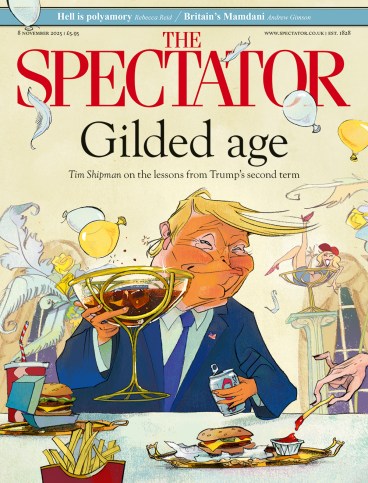
Like Zohran Mamdani in New York, Zack Polanski offers the thrill of cost-free rebellion. Mamdani leapt to prominence at the end of June by unexpectedly winning the Democratic party nomination in the New York mayoral race, and doing so as an avowed socialist who claims that by taxing the rich he will relieve ‘the despair in working-class Americans’ lives’. Polanski has made waves since the start of September as the new leader of the Green party of England and Wales, using a rhetoric calculated to appeal to left-wing activists, while proclaiming himself the champion of plumbers and hairdressers. He has conjured up an alliance between utopian socialists like himself and sturdy, hard-working people who provide services on which we all depend, and who are struggling to get by.
What is Labour doing for plumbers and hairdressers? Putting their taxes up. What would the Conservatives do? No convincing prospectus for bringing those taxes back down yet exists. Polanski has spotted a gap in the market.
He has launched a Momentum-style power grab, leading a feel-good insurgency against the establishment
When accused of offering assurances which indicate an unbounded credulity in the power of the state – ‘We will bring down your bills, we will cut the cost of living, we will protect our NHS’ (lines which produced long and loud applause at the Green party conference at the start of last month) – he dodges the charge by launching a counterattack. According to Polanski, we have ‘a political class poisoned by extreme wealth’, and anyone who questions his call for a wealth tax is a billionaire’s lackey.
In his party political broadcast ‘Let’s Make Hope Normal Again’, filmed in a dark street in the north of England, he says: ‘There are some people in this country, when they go to sleep at night they lay their heads on the pillow just like us. They lie in the same darkness we do. But when they sleep, something happens. It’s like the economy does a little dance for them. And when they wake up, without working a third job or doing an extra shift, they are richer, much richer. In one night’s sleep they make more than the plumber and the hairdresser could earn in an entire year.’
Polanski promotes the politics of envy repackaged as the politics of hope. He comes before the viewer as a nice guy. Although he describes great wealth as ‘obscene’, his tone is not rancorous. When it is put to him that his proposed 1 per cent tax on the assets of the super-rich would produce nothing like the revenue required ‘to make Britain a country everyone can afford’, but would prompt an exodus which left those of us who remain poorer, he shifts his ground and replies that such a tax ‘will help reduce inequality’.
In conversation with the BBC presenter Adam Fleming on Newscast, Polanski sounded as specious as Pangloss, as immature as Candide, as he claimed: ‘There are a very small group of people, the multi-billionaires, who are controlling our assets, who are controlling the narrative. We need to challenge them, I don’t necessarily mean in an aggressive way.’
If he were not himself Jewish, he might be accused of reviving conspiracy theories peddled by the Nazis. But Polanski is a nice guy, anxious to be liked and to connect with people. If Nigel Farage is the life and soul of the saloon bar, Polanski is the friendly proprietor of the local hipster coffee shop, making new arrivals feel welcome, behaving as if he is in an episode of Friends.
He lives in Hackney with his boyfriend, Richie Bryan, a palliative care nurse. A young woman who spent a day canvassing with Polanski described him as ‘really likeable’ and ‘a relatively normal bloke’ who ‘hasn’t been moulded into a politician by being in a big party’ and who, when knocking on the doors of non-Green voters, which was almost everyone, ‘managed to get them all chatting’.
Polanski told Fleming his party has ‘too often been stuck in the language of sacrifice’. The new Green leader seldom mentions the environment and never demands the sacrifices which saving it has traditionally been said to require. He has instead launched a left-wing, Momentum-style power grab, with himself playing the part of the new Jeremy Corbyn, leading a feel-good insurgency against the establishment.
This ‘eco-populist’ leadership, designed to carry the battle not just to Sir Keir Starmer but to Farage, won Polanski an overwhelming victory in the Green leadership battle, with 84 per cent of the vote. It has enabled him within a few months to more than double the party’s membership, which is now said to exceed 140,000.
Polanski attracts optimists of the left who believe a wealth tax set at a level well above the value of their own homes would be fair. They applaud him when he proclaims that ‘migrants and refugees are welcome here’. They cheer even more loudly when he accuses the Starmer government of being ‘an active participant in the murdering of the Palestinians’, demands an embargo on arms sales to Israel and proposes leaving Nato as soon as a European alternative excluding the United States can be created.
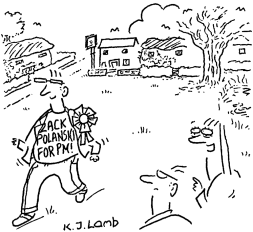
Many Greens are worried by Polanski. Two of the party’s four MPs – Ellie Chowns, who at the last general election took North Herefordshire from the Conservatives, and Adrian Ramsay, victorious in another Conservative district, Waveney Valley – stood on a joint ticket against him in this summer’s leadership contest. They represent the Greens’ respectable, consensual tradition, in which progress is made by decades of patient work at local level.
Chowns, who once worked for Christian Aid and whose doctoral thesis was entitled ‘The political economy of community management: a study of factors influencing sustainability in Malawi’s rural water supply sector’, has warned: ‘Anyone who wants to win in a first-past-the-post system has to be able to win the trust of people who don’t agree with them about absolutely everything, ideologically or policy-wise, but feel that they can put their trust in that person.’
Polanski is a more rousing speaker than Chowns or Ramsay: neither of them would have received as many standing ovations as he did at the party conference. While he continues to win headlines, higher poll ratings and new members, he is untouchable, but if and when he falters, some long-serving Greens are likely to lament that he was always more Red than Green.
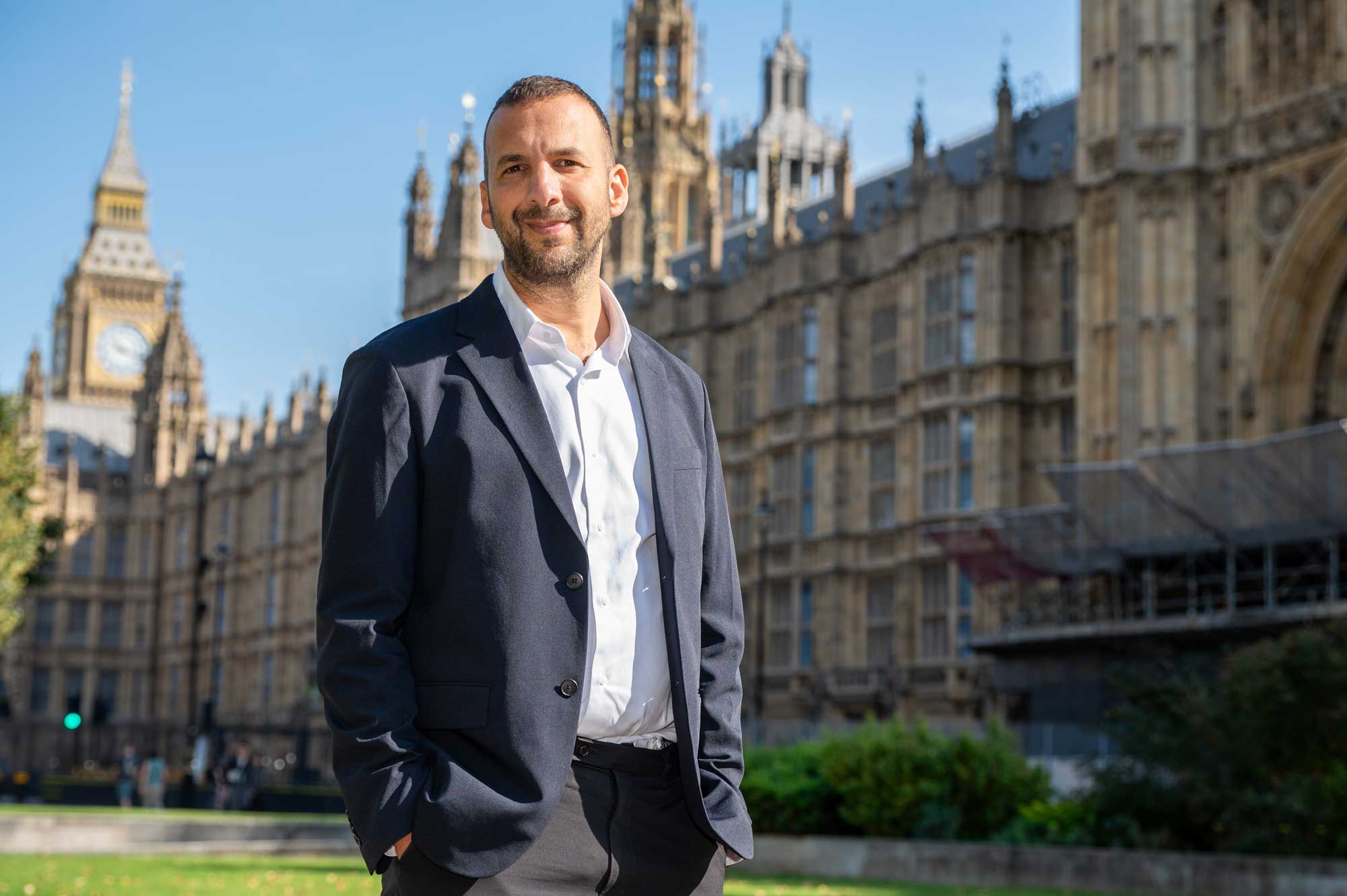
He was born David Stephen Paulden on 2 November 1982 in Salford, west of Manchester, to Jewish parents who soon split up. When he was 18 he changed his name by deed poll to Zack Polanski. His new surname had been borne by his grandfather on arriving in England from eastern Europe in the early 20th century, but had been anglicised to Paulden. Zack was taken from a character called Zach (with an ‘h’) in a sentimental story about children, Goodnight Mister Tom by Michelle Magorian.
After Stockport Grammar School, a fee-paying establishment founded in 1487, and a local sixth-form college, Polanski studied drama at Aberystwyth, and later at a drama school in Georgia in the United States. He has spent long enough on the stage to look at ease there. He worked as a jobbing actor, a drama teacher and a hypnotherapist at the Lewis Clinic in Harley Street. Here in 2013, aged 30, he gave an interview to a Sun journalist in which he assured her she could increase the size of her breasts by using her unconscious mind while under hypnosis, telling her: ‘This is an extremely new approach, but I can see it becoming popular very quickly, because it’s so safe and a lot cheaper than a boob job.’
He seldom mentions the environment, never demands the sacrifices which saving it is traditionally said to require
In the story, published under the headline ‘TIT-NOTISED – Can you really THINK your boobs bigger?’, we find Polanski experimenting with the wishful thinking he was soon to apply to politics. At the end of the piece, readers are informed that he charges £220 for a 90-minute session. He has since apologised for giving this interview.
In 2015 he joined the Liberal Democrats, and at their party conference, while introducing and performing with a gospel choir, declared that the party possessed the ‘patience, resilience and grit’ (words previously used by Nick Clegg) needed to come back from their recent general election defeat. Polanski turned out to lack the patience, resilience and grit needed to remain a Liberal Democrat. He left the party after it refused to put him on the shortlist for the Richmond Park by-election.
In 2017 Polanski joined the Greens; in 2021 he was elected a Member of the London Assembly, where his salary is £66,390, and he now leads a party with four MPs (not including him) and almost 900 councillors.
The febrile state of British politics, and the unpopularity of what used to be the two main parties, make it possible that the Greens will go further under Polanski, with him presenting himself, like Mamdani, as the last best hope of socialism.
Andrew Gimson’s Gimson’s Heroes: Brief Lives from Boudicca to Churchill is out now.

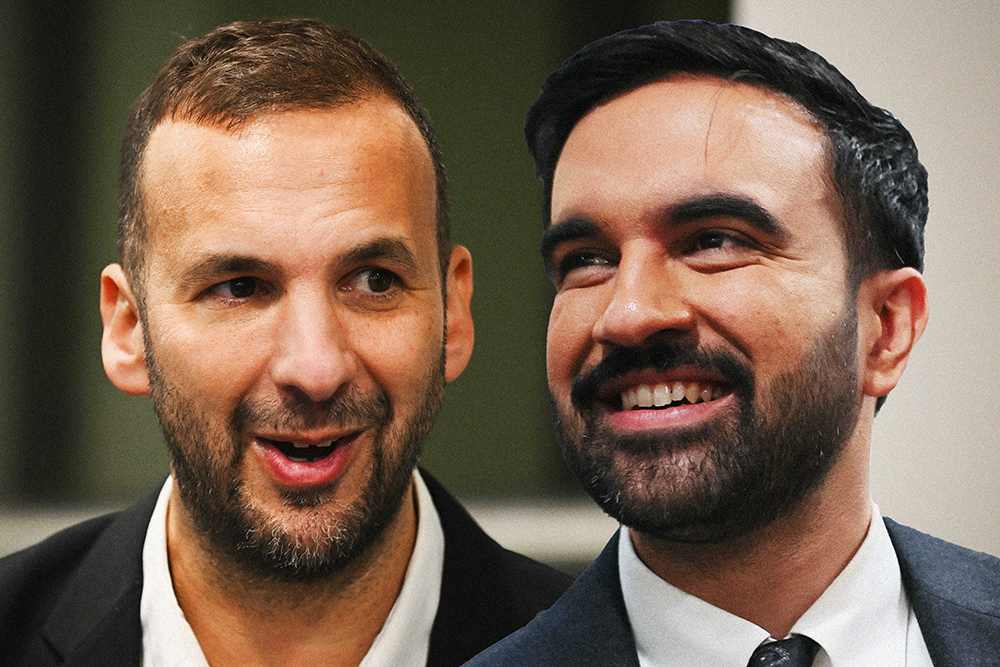
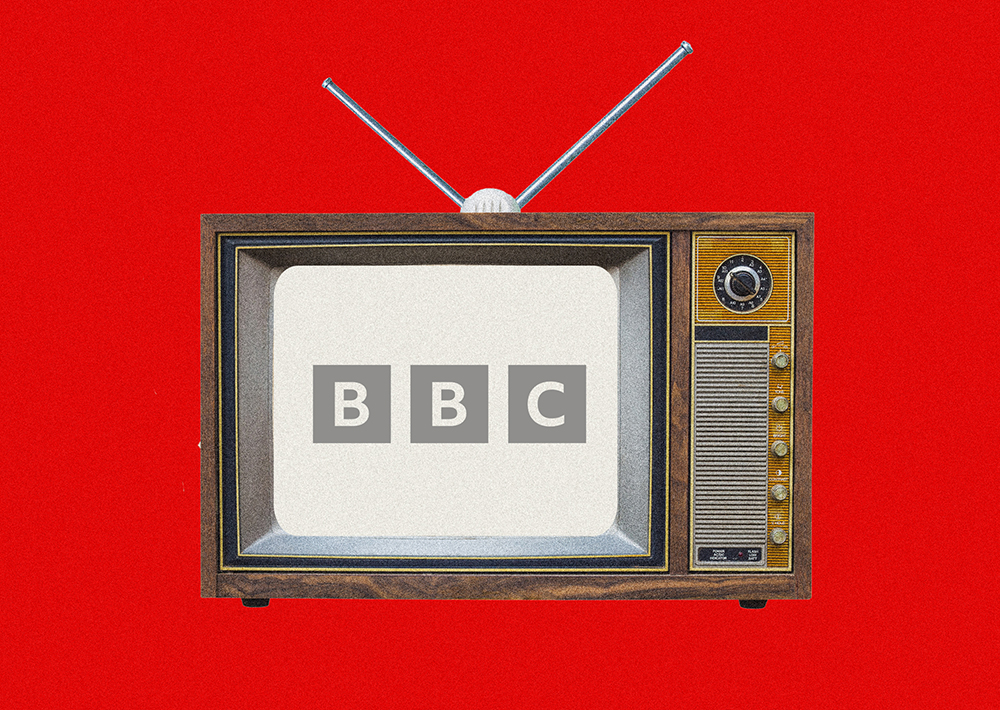




Comments